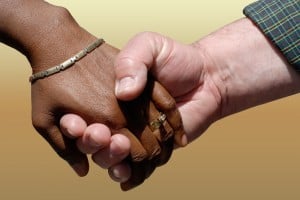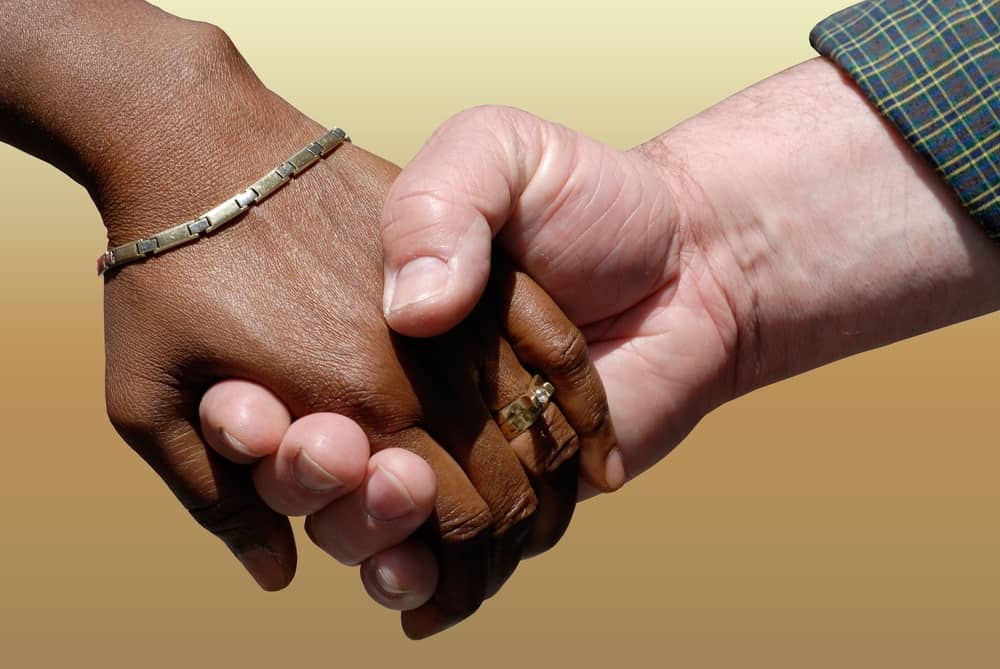After three years living under the Arch, I was not surprised by the more recent manifestations of racial division in and around St. Louis and the protests and sit-ins that followed, like the one that happened on the campus of Saint Louis University:
Protesters gather at St. Louis Univ. to condemn police shootings
My Freshman English students, on the other hand, were quite surprised as they read through an article I assigned to them last Monday, about the “fatal shooting of an 18-year-old black man in south St. Louis by an off-duty police officer sparked a night of unrest in a city still reeling from the August slaying of an unarmed man in nearby Ferguson.” It seems as though continuing violence and unrest show little sign of abating.
Racial violence is striking to these 14 year old Portlanders, who tend towards a bit of naiveté after being taught the benefits of multi-racial, multi ethnic, religiously plural environments. I wanted to hear from them how they felt about places and situations that are so different, and I wanted to know what a 14 year old might do to alleviate the division that comes from divisive reality.
The Freshman solution surprised me. Almost universally, the response to this violence was an individual, personalized vow of reconciliation to friends and family with whom they are in conflict. There was no suggestion of walk outs or sit ins, and no appeals to grand movements. The response was simple. It was challenging, but it was simple.
We have a tendency, I think, to see oppression through a filter of hyperbole. Division remains limited to the most tyrannical of oppressors and racism comes solely in the forms of racist police officers, members of the KKK or Neo-Nazis, who earn equally dramatic opponents in sit-ins and large-scale protests.

Personal reconciliation. Image courtesty lakemotion/Shutterstock
But I wonder if what is lacking in these responses is the difficult necessity of reconciling personal divisions. Daily, we ourselves serve as oppressed and oppressors, as dividers and divided. Extremes of racism and division can often serve as scapegoats and smokescreens to the realities of division that are part of our daily lives.
If my Freshman are right–and I think that they are–our path away from scapegoating towards real peace is our daily practice of reconciliation: personal vows, settling individual conflicts, combatting our own daily oppressions. In order for our sit-ins to have weight, our causes to be stalwart, and our protests to be valiant, we must attend to the matters in which we play a primary role.
There is, of course, a benefit to demonstrations, sit-ins, and causes, and we would be foolish to deny the contributions of civil rights activists. But let’s not take for granted the rigorous self-work that must take place in anticipation of these contributions. Before reconciliation is communal, it must be individual. Before we strive to transmit something, we ourselves must have worked for it. Can we look at ourselves first in order to carry on in hope?


